MercoPress. South Atlantic News Agency
Tag: Mauricio Macri
-
Thursday, November 26th 2015 - 07:01 UTC
Cristina Fernandez wants to become head of the opposition to Macri
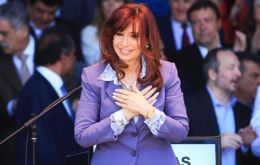
Argentine president Cristina Fernandez made on Wednesday her first public appearance since Sunday's election runoff when opposition candidate Mauricio Macri was confirmed as the new head of state, and clearly anticipated she will continue in politics and pretends to conduct the Justicialista party, the country's hegemonic political force.
-
Wednesday, November 25th 2015 - 07:21 UTC
UK expects new Canadian government will continue to support Falklands
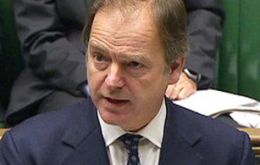
The UK government is looking forward to working with the new government of Argentina and hopes the people of the Falkland Islands will not suffer the bellicosity shown by the current administration, said Foreign Office minister Hugo Swire in Parliament.
-
Wednesday, November 25th 2015 - 07:03 UTC
Macri names top UN official as Argentina's next Foreign Minister
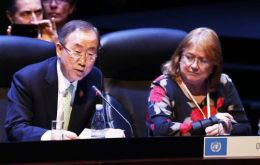
President-elect Mauricio Macri has tapped a top United Nations official to be Argentina's next foreign minister. Macri announced on his Facebook page on Tuesday that he picked Susana Malcorra, Cabinet chief for U.N. Secretary General Ban Ki-moon since 2012.
-
Tuesday, November 24th 2015 - 12:21 UTC
Macri will announce his economic team and measures once he has access to official data
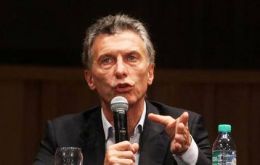
In his first press conference as Argentine president-elect, Mauricio Macri announced on Monday he would not have a Secretary of Economy but rather an economic cabinet with six members, and anticipated that the team that will be taking office with him, as well as those in the province of Buenos Aires, “will include many officials which do not come from the political system”.
-
Tuesday, November 24th 2015 - 10:13 UTC
Washington promises to cooperate closely with elected president Macri
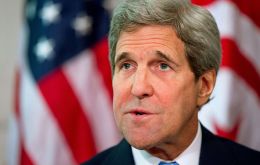
United States State Secretary John Kerry congratulated on Monday newly elected president of Argentina Mauricio Macri saying Washington will cooperate “closely” with the administration that will take office on December 10.
-
Monday, November 23rd 2015 - 07:40 UTC
“Change is possible, thanks for believing”, president elect Macri´s first words
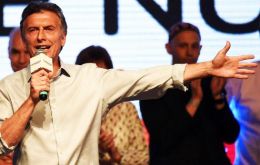
“Change is possible, thanks so much for having believed”, were the first words of Argentine president-elect Mauricio Macri when he appeared on stage at his packed headquarters in Buenos Aires, Sunday evening. Visibly emotional and euphoric, Macri said “it is a historic day for Argentina, a change of times. A change that will guide us to the future”.
-
Monday, November 23rd 2015 - 07:16 UTC
Argentine president-elect Macri takes office on 10 December; Tuesday meeting with Cristina Fernandez
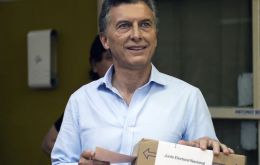
Mauricio Macri is Argentina's next president following the results of Sunday's runoff, the first in Argentine history. He will take office on 10 December replacing president Cristina Fernandez and twelve years of uninterrupted Kirchnerism. Although definitive results are yet to be announced by electoral officials, the primary vote counting indicated that Macri was winning with a four percentage points over incumbent Daniel Scioli.
-
Saturday, November 21st 2015 - 08:48 UTC
Macri honors 'Pachamama' and Scioli bewares 'the savage capitalism demon' on closing election rallies
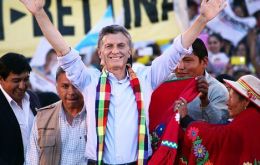
Argentine presidential opposition candidate Mauricio Macri closed his campaign ahead of Sunday 22 November runoff calling for change and unity while the incumbent hopeful Daniel Scioli said the option was between 'a development inclusive project' or the “savage capitalism demon”.
-
Saturday, November 21st 2015 - 08:09 UTC
High expectations in Argentina of a record soybean sowing in 2015/16
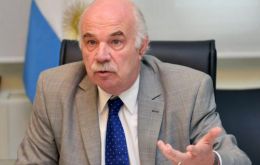
Argentina's much-watched soybean sowings will set a record this season, but the country is heading for a weaker wheat harvest, despite ideas of “very good” yields, the country's farm ministry said. In its first estimate the ministry said soybean sowings for 2015-16, pegged area at 20.6m hectares, a rise of 800,000 hectares year on year.
-
Thursday, November 19th 2015 - 07:37 UTC
Scioli's burden: Kirchnerism and Macri's, his rich family background

What are the main drawbacks of the Argentine presidential candidates, ahead of 22 November runoff and following their exposure in last Sunday's debate, is the question a Buenos Aires pollster has tried to unveil, and how much could they in effect influence Sunday's vote.
